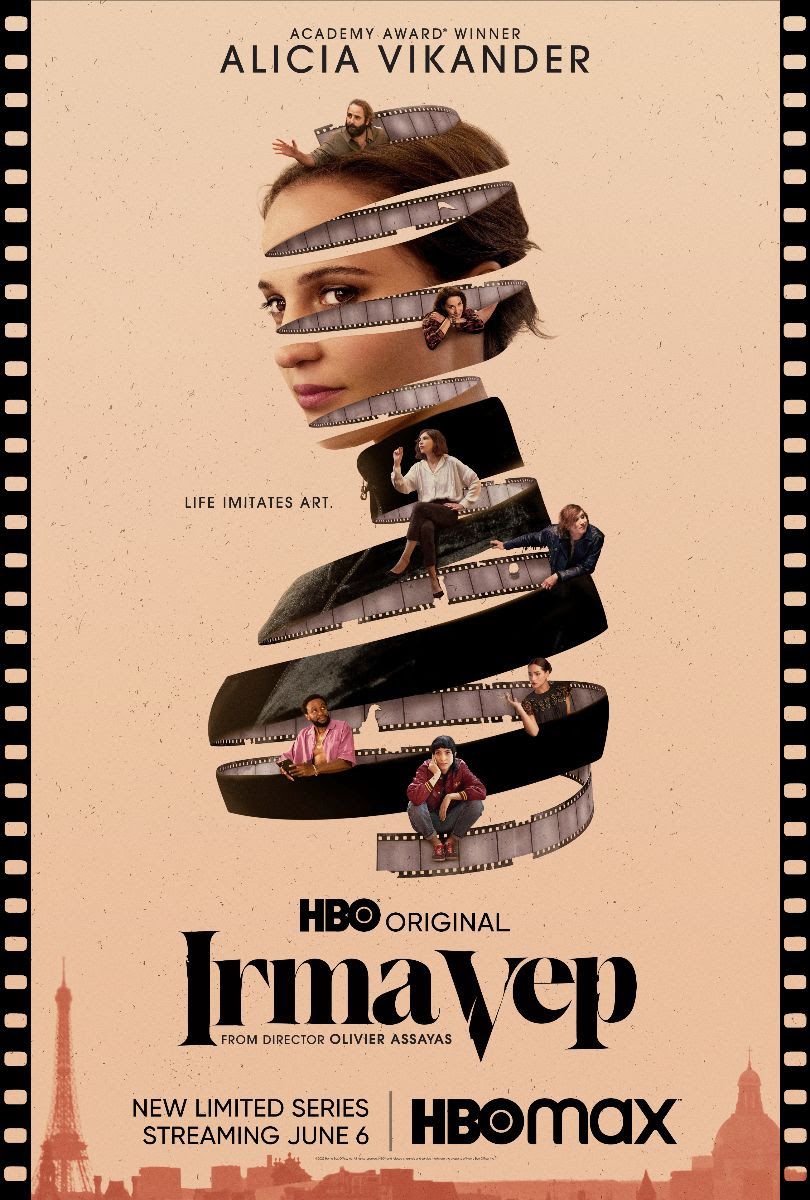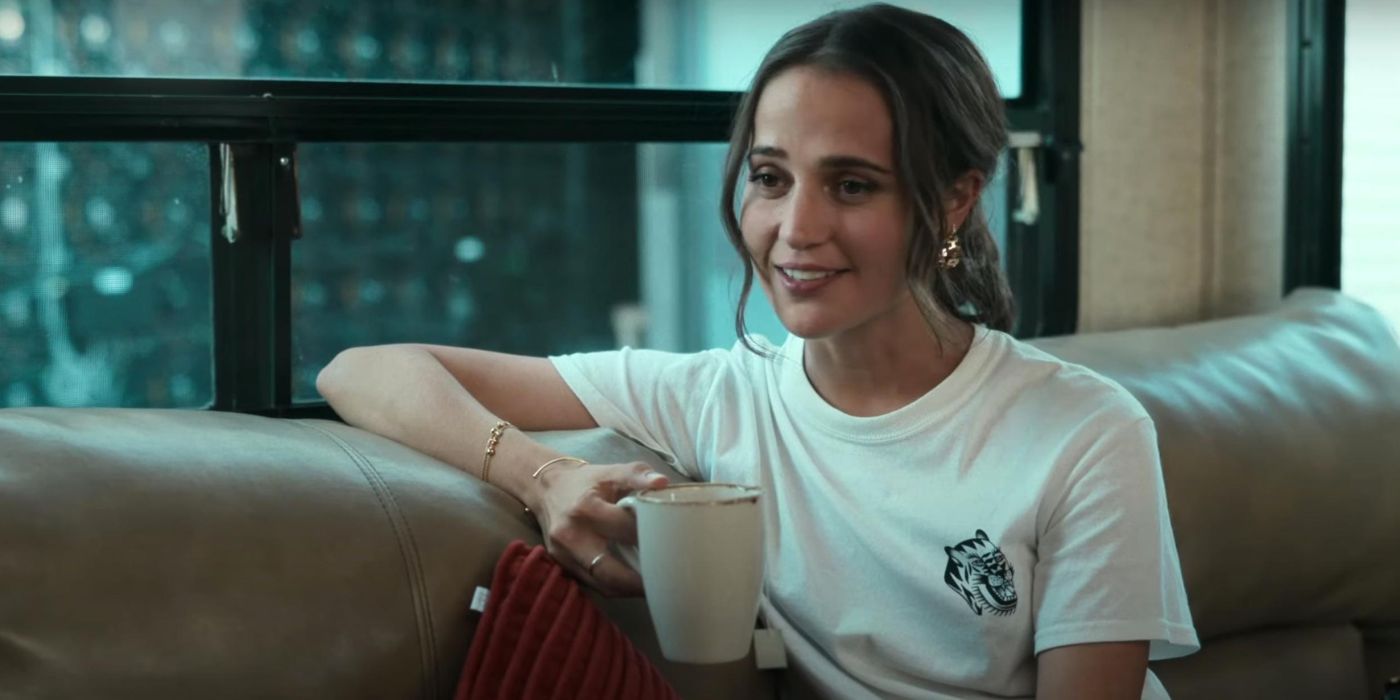This modernized story is a variation on a cult classic.
The Big Picture
- The
Irma Vep
series serves as a response to the evolving entertainment industry since the original film’s release. - The miniseries develops more well-rounded characters, including a fictional actress with a compelling backstory.
-
Irma Vep
explores the benefits of television by immersing viewers in an immersive world that mirrors reality.
While there have been many recent television shows that remake classic films, crafting an extended series out of a self-contained story can often be challenging. The two mediums require completely different storytelling techniques, and sometimes it’s best not to touch something that was already successful. Filmmaker Olivier Assayas certainly faced sizable expectations when he attempted to reimagine his 1996 cult classic Irma Vep as an HBO miniseries. With its clever satire of the film industry and pretension of performers, Irma Vep was already successful. However, Assayas’ new version of Irma Vep perfectly modernized the material, serving as a response to the radical ways that the entertainment industry had evolved since the original films’ release.

Irma Vep
Mira is an American movie star disillusioned by her career and recent breakup, who comes to France to star as Irma Vep in a remake of the French silent film classic, “Les Vampires.”
- Release Date
- June 6, 2022
- Creator
- Olivier Assayas
- Cast
- Alicia Vikander , Vincent Macaigne
What Is ‘Irma Vep’ About?
The original Irma Vep starred actress Maggie Cheung as a fictionalized version of herself who gains the lead role in a remake of Louis Feuillade‘s classic silent film serial Les Vampires. As she grows more entrenched within the preparation that the role requires, Cheung finds it harder to differentiate her performance from her reality. By exploring the perspective of an outsider, Irma Vep analyzes the performative intensity of a chaotic film production. The result is a film that both celebrates the commitment of artists and satirizes the aggressive personalities that often dominate the industry. The allusions to the history of classic cinema and references to real figures within the French film industry allowed Irma Vep to craft a vibrant, lived-in depiction of the realities of filmmaking.
While simply recreating the original concept could have cut out the subversive qualities that made the film so influential, the Irma Vep HBO miniseries is not a traditional reboot or continuation. Rather than starting from scratch, the new Irma Vep follows another young Hollywood actress, Mira (Alicia Vikander), who is approached to star in yet another remake of Les Vampires by René Vidal (Vincent Macaigne). While the project is conceived as a miniseries, Vidal is insistent that the project rises above the constraints of the television medium, and should be considered to be a film. This is a talking point that has been frequently floated by television creators. By incorporating it into the central text of the narrative, Assayas comes full circle with his meta commentary.
The Irma Vep miniseries continues the original film’s commentary on Hollywood’s lack of creativity, as they both show the inherent hardships that come with re-adapting material that was relevant during a specific time and era. Despite Cheung and Vidal’s best efforts in the original film, they don’t truly understand what made Les Vampires work. The film was ahead of its time, but simply reiterating it for a new generation will simply feel retrograde. This theme is only exacerbated by the television series because it is itself a remake, and will inherently struggle to have the same cultural staying power that the original film had. Considering the plethora of unnecessary remakes that Hollywood has produced in recent years, the satire of creative ineptitude feels more relevant than ever.
‘Irma Vep’ Goes Deeper With the Original Characters
While the original film was broadly satirical in its intentions, the Irma Vep miniseries improves upon the original source material by crafting more well-rounded characters. Since Vikander is playing a fictional character and not a version of herself, the series is able to give Mira a compelling backstory that reveals details about her status as a celebrity. Mira is partially motivated to join the project because she was targeted by a tabloid scandal, and now seeks to reinvent herself with a more prestigious project. It’s an effective window into a less glamorous side of Hollywood that forces female artists to prove themselves “worthy” of the admiration that they receive. Despite Mira’s interest in the original film’s star, Musidora, Mira is surprised by how unwilling her collaborators are to treat her as an individual artist with talents of her own.
While Vidal is depicted as a caricature of eccentric filmmakers in the original film, Macaigne gives more depth to his performance by showing the pressures he is under. While the series does in no way justify or lionize the demands Vidal puts upon his cast and crew, the inclusion of a backstory that points to his struggles with anxiety and inability to express himself are effective in fleshing out his backstory. Television has evolved in its depiction of mental health struggles, and Irma Vep examines how Vidal’s personal battles affect the dispersion of power on his sets. As a result of his creative imbalances, Vidal’s vision for the projects grows more obscure and creates additional chaos.

‘Irma Vep’ Cast & Character Guide: Who’s Who in the HBO Series
See who stars in HBO’s meta-reboot of the cult classic Irma Vep.
‘Irma Vep’ Shows the Benefits of Television
It’s fitting that Irma Vep analyzes the differences between television and film, as the series itself shows the benefit of long-term storytelling. While the original film was relatively confined to the set of the production, the miniseries has the freedom to explore how extraneous events in the entertainment industry impact the dynamics of Les Vampires’ production. While some of the films, celebrities, and entertainment events mentioned in the series are fictitious, they help create an immersive world that mirrors reality. In particular, Mira’s exhaustion with the state of blockbuster filmmaking and Hollywood’s obsession with comic book adaptations feels like a timely piece of commentary on the current state of the industry.
The extended runtime gives Irma Vep more freedom to explore the production itself, with several episodes dedicated to creative roadblocks that the Les Vampires crew feels. While spending so much time with self-aggrandizing characters risks being pretentious, Irma Vep is so deftly satirical in its examination of the creative process that it’s not a barrier. The extended nature of the shoot has lasting psychological effects on Mira, and the show brilliantly teases supernatural elements as the pressure of living up to the role takes a toll on her. While it’s rare to see a filmmaker remake their own project, Assayas was able to create a tactful “legacy sequel” that both fulfilled the expectations of the original film’s fans and engaged those being exposed to the story for the first time.
Irma Vep is streaming on Max in the U.S.
This article was originally published on collider.com


